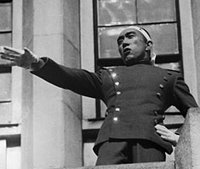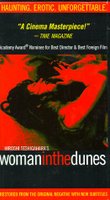春の雪
 Haru no Yuki (春の雪 or Spring Snow) is a book by Yukio Mishima (三島 由紀夫) which documents a tragic romance. It is the first in his tetralogy Hojo No Umi (豊穣の海 or The Sea of Fertility). It is a book that I read quite a few years back, and something suddenly reminded me of it, although I can't think what. I would recommend for anyone to read the English translation, because you don't really understand the meaning of the word "epic" until you've read one of his works!
Haru no Yuki (春の雪 or Spring Snow) is a book by Yukio Mishima (三島 由紀夫) which documents a tragic romance. It is the first in his tetralogy Hojo No Umi (豊穣の海 or The Sea of Fertility). It is a book that I read quite a few years back, and something suddenly reminded me of it, although I can't think what. I would recommend for anyone to read the English translation, because you don't really understand the meaning of the word "epic" until you've read one of his works!... at least, that's what I remember. The book was also turned into a film, which I have avoided seeing so far - the DVD cover makes it look far too romantic, which the book wasn't.
On a side note - the author had a weird life and fairly interesting (although often distasteful) political views, which you can read about here:
Mishima was deeply attracted to the patriotism of imperial Japan, and samurai spirit of Japan's past. However, at the same time he dressed in Western clothes and lived in a Western-style house. In 1968 he founded the Shield Society, a private army of some 100 youths dedicated to a revival of Bushido, the samurai knightly code of honour. In 1970 he seized control in military headquarters in Tokyo, trying to rouse the nation to pre-war nationalist heroic ideals. After failure Mishima committed seppuku (ritual disembowelment) with his sword on November 25, 1970. Before he died he shouted, ''Long live the Emperor.'' On the day of his death Mishima delivered to his publishers the final pages of The Sea of Fertility, the authors account of the Japanese experience in the 20th century. The first part of the four-volume novel, Spring Snow (1968), is set in the closed circles of Tokyo's Imperial Court in 1912. It was followed by Runaway Horses (1969), The Temple of Dawn (1970) and Five Signs of a God's Decay (1971). Each of the novels depict a different reincarnation of the same being: first as a young aristocrat, then as a political fanatic in the 1930s, as a Thai princess before and after World War II, and as an evil young orphan in the 1960s.
But you don't have to like someone to admire them... Margaret Thatcher, Mao Ze Dong and Adolf Hitler being cases in point. Admittedly, I'm being potentially unfair on some of them by grouping them all together, but you get the point, and I'll move onto safer ground now...
 Another Japanese book worth reading was also turned into a film well worth seeing. It is called Sunna no Onna (砂の女 or The Woman in the Dunes) and is by Kobo Abe (安部公房). It documents the imprisonment of an insect collector in a village dominated by sand, and is a very powerful, allegorical and sexually charged work. You can find out about the film on IMDB. I would recommend reading the book first though, as my impression of the main character was quite different to the one portrayed in the film.
Another Japanese book worth reading was also turned into a film well worth seeing. It is called Sunna no Onna (砂の女 or The Woman in the Dunes) and is by Kobo Abe (安部公房). It documents the imprisonment of an insect collector in a village dominated by sand, and is a very powerful, allegorical and sexually charged work. You can find out about the film on IMDB. I would recommend reading the book first though, as my impression of the main character was quite different to the one portrayed in the film.
0 Comments:
Post a Comment
<< Home